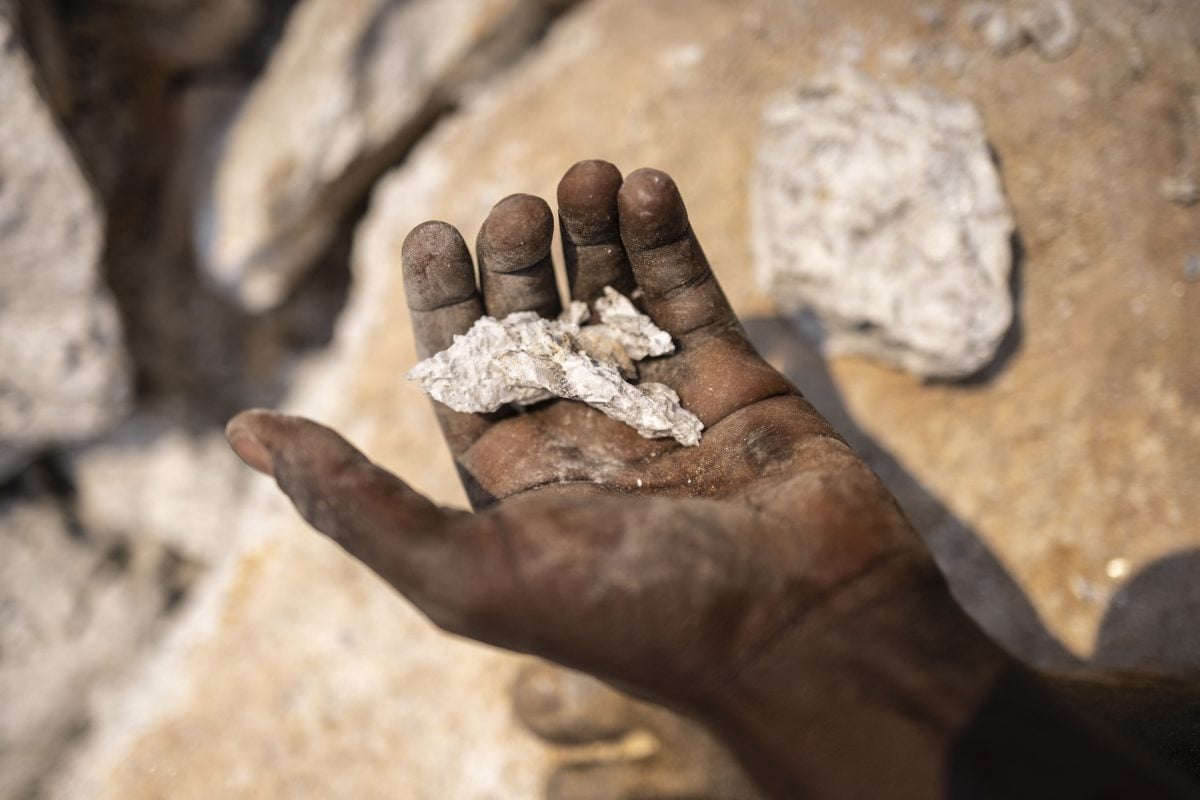Chinese companies are taking up positions at both ends of Nigeria’s clean energy supply chain in a bid to dominate the electric vehicle future of Africa’s most populous country. Two factories for the processing of lithium, a vital element in the batteries for electric vehicles, are planned in Nigeria this year, both backed by Chinese investors.
One is a $600m facility under construction on the boundary of Kaduna and Niger states in the country’s north by Jiuling Lithium Mining Company, which is due to start production this quarter. Another, a $200m facility by Canmax Technologies located in Nasarawa state, just outside the capital, Abuja, will start in the third quarter.
The Chinese firms have the majority stake, funding more than 80% of the ventures, with the minority stakes held by local investors.
Founded in 2011, Jiuling has grown into a leading global supplier of lithium salts for electric car batteries. It counts among its customers the US electric-car maker Tesla, and China’s BYD group, the global leader in electric vehicles.
Canmax began life in 1997 as a supplier of battery materials but has veered squarely toward lithium processing in recent years. More plants are also due to start operation this year, bringing current Chinese investments in Nigerian lithium facilities to about $1.3bn, according to the Ministry of Solid Minerals.
They join a few other early starters in Nigeria’s lithium sector including Ganfeng Lithium Industry, a company registered in Nigeria by Chinese nationals, which opened a $250m lithium processor in Nasarawa state last year. Also in the Nigerian lithium fray is UK company Jupiter Lithium, which discovered high-quality lithium deposits in Kaduna state.
Discoveries indicate huge potential
Nigeria does not yet count among the world’s leading lithium producers – Australia, Chile and China account for more than 80% of global production – but discoveries made so far indicate huge potential, according to the prospectors. A lithium belt has been mapped by the Nigerian Geophysical Survey Agency (NGSA), across the country from the northwest through the country’s centre to its southeastern edges near the Cameroon border.
A major attraction of Nigerian lithium is its high grade, with some deposits containing as much as 13% lithium oxide. Deposits with a mere 0.4% lithium are often worth exploitation. Nigeria is also incentivising exploration – investors get a five-year tax holiday, duty exemptions on plant and machinery, deferred royalty payments to the government and a capital allowance of 95%.
Local value addition
President Bola Tinubu‘s administration, which took office two years ago, cites its changed approach to mining, neglected for decades after Nigeria discovered crude oil, as the reason for new investors’ commitment. The government now prohibits the export of mined raw materials, insisting on some local processing. “Under our new local value-addition policy, we said investors must show us plans for local refining,” minister of solid minerals development Dele Alake told reporters recently. “That has led to these two factories.”
The main rival to the Chinese companies so far in the race for Nigeria’s lithium is Jupiter Lithium, which capped some two decades of work in Nigeria with the discovery of significant lithium reserves in the northern state of Kaduna. Jupiter teamed up with US-based ReElement Technologies, a refiner of rare earth minerals, to build its first concentrator facility. It started production in the first quarter, with plans to produce 55,000 tons of 6% lithium this year, increasing output to 167,000 tons in two years, according to the company. Though Jupiter has an agreement to supply some local electric vehicle companies, the bulk of its output is aimed at meeting the demand of manufacturers in Europe and America, according to its chairman Stephen Davis.
The ultimate aim is to set up local electric vehicle assembly plants that will run on the lithium batteries produced in Nigeria, Alake said. And after an 18 May meeting with Alake, China’s ambassador to Nigeria Yu Dunhai said: “Plans are under way to establish electric vehicle factories.” Chinese companies are already deeply involved in Nigeria’s mining sector, from exploration to processing.
Fledgling indigenous companies
While Nigeria may have been a latecomer to electric vehicles due to a history of poor and erratic mains power supply, China’s BYD nonetheless opened shop in Nigeria in April after reaching a distribution deal with French trading company CFAO for sports utility vehicles.
BYD is joining a Nigerian electric vehicles market still in its early stages, with fledgling indigenous companies such as the Electric Motor Vehicle Company (EMVC) and Saglev. EMVC, based in Abuja, produces a range of electric-powered vehicles from tricycles to cars, buses and farm equipment. Lagos-based Saglev is for now focused on sedans and sports utility vehicles.
For power, the industry appears to be adopting the same off-grid response used to cope with power shortages and outages. While in the past most of those who could do so acquired fossil-fuel generators, electric vehicle owners are switching to solar power and storage systems to support their mobility.
“Just like any serious Nigerian business makes alternative power arrangements, the future of electric vehicles here is mostly off-grid,” says Ardo Mohammed, an Abuja-based enthusiast who says he recently gave up his gasoline-powered car for a BYD Atto 3 model.
Solar-powered charging stations
To encourage more rapid adoption, the Ministry of Innovation, Science and Technology has started building solar-powered fast-charging stations in Abuja, in collaboration with indigenous EV maker EMVC. “It is a direct reflection of Nigeria’s commitment to reducing dependence on fossil fuels, enhancing energy security, and promoting green innovations,” Uche Nnaji, the minister, said at the recent unveiling.
To further consolidate its lead in the emerging electric vehicles sector in Nigeria, China is moving to increase its engagement with the Nigerian government. When Tinubu visited China in September his bilateral talks with President Xi Jinping centred on infrastructure, energy, the green economy and mining. Both countries also decided to elevate their relations from a strategic partnership to “a comprehensive strategic partnership,” indicating even deeper relations.
Nigerian foreign minister Yusuf Tuggar visited Beijing this June to follow up on those discussions and participate in the Ministerial Meeting of Coordinators on the Implementation of the Forum on China-Africa Cooperation. On the table were new Chinese proposals for green technology, non-tariff market access and digital infrastructure investments. “Nigeria is ready to work more closely with China, not just as a partner but as a strategic ally in delivering economic transformation and sustainable development,” Tuggar told reporters at the end of the meetings.
Want to continue reading? Subscribe today.
You've read all your free articles for this month! Subscribe now to enjoy full access to our content.
Digital Monthly
£8.00 / month
Receive full unlimited access to our articles, opinions, podcasts and more.
Digital Yearly
£70.00 / year
Our best value offer - save £26 and gain access to all of our digital content for an entire year!

 Sign in with Google
Sign in with Google 



